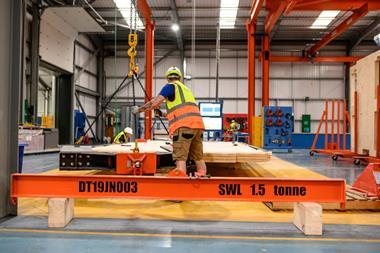It was the best of Budgets, it was the worst of Budgets – the best in terms of the eye-watering £65bn rescue package announced in what some hailed as the most important Budget delivered in peacetime, and the worst in that said £65bn represents just a drop in the ocean of what is required to kickstart the post-Covid economy.

Chancellor Rishi Sunak made it clear from the off that the outlook is even bleaker in Johnsonsian times than it was in Dickensian ones. The cashier at my local Co-op didn’t need to be told. When I popped in following the Budget announcement to pick up essentials (red wine), I heard her comment to the customer in front of me: “The rich get richer and the poor get poorer – it’s always the way.” Sadly, there is nothing in the Budget to persuade me she is wrong or that Sunak’s grand gestures are any more than that: gestures.
The biggest disappointment has to be the epic fudge on business rates. The extension of business rates relief to retail, hospitality and leisure tenants is all well and good, but it is just a temporary fix and won’t be enough to rescue some in the sector, not after what will have been more than a year of zero or severely restricted trade.
It also offers no salve to landlords, who do not benefit from any such relief. As BPF chief executive Melanie Leech notes, proper root-and-branch reform is needed: “This can has yet again been kicked down the road. Property owners – local authorities, pensions and savings funds – are owed more than £5bn and have had no direct support from government. That cannot continue.”
Throw in the mix the chancellor’s failure to abolish empty business rates and the landlords, ever typecast as villains of the piece (more parallels with Dickensian times), come even closer to joining the ranks of the poor, when they are just as important as their tenants to the recovery and reinvention of the high street. “Where’s the justice in that?” asks Shopkeepers’ Campaign CEO Vivienne King.
Where indeed? As for the stamp duty holiday extension, will it really make that much of a difference? There is a danger that along with the reintroduction of 95% mortgages (this time government-backed), it will just drive up demand and with it house prices (bubble alert) – making it easier for rich kids who are looking to buy their first homes, but not for working class folk like my friend, who recently sold her flat for a tidy profit but has decided not to buy a new home for the time being as prices have gone up far more than the stamp duty saving she would have made. In short, what should be a buyer’s market looks as though it is turning into a seller’s one – unless you’re well-off.
Neither was there much of note or worth in the Budget on the climate front. UKGBC chief executive Julie Hirigoyen was certainly not impressed, questioning why Sunak has not responded to calls for the £1.4bn of unspent funding under the Green Homes Grant scheme to be rolled over and why the Budget “appears to ignore the huge part greening our buildings can play in delivering our post-Covid economic recovery”.
All in all, it is a sticking plaster of a Budget that will do little to heal the UK economy’s broken limbs and gaping wounds. To misquote Dickens again, it should be the spring of hope, but it still feels like the winter of despair – especially with the tax hikes that are set to follow.
































No comments yet